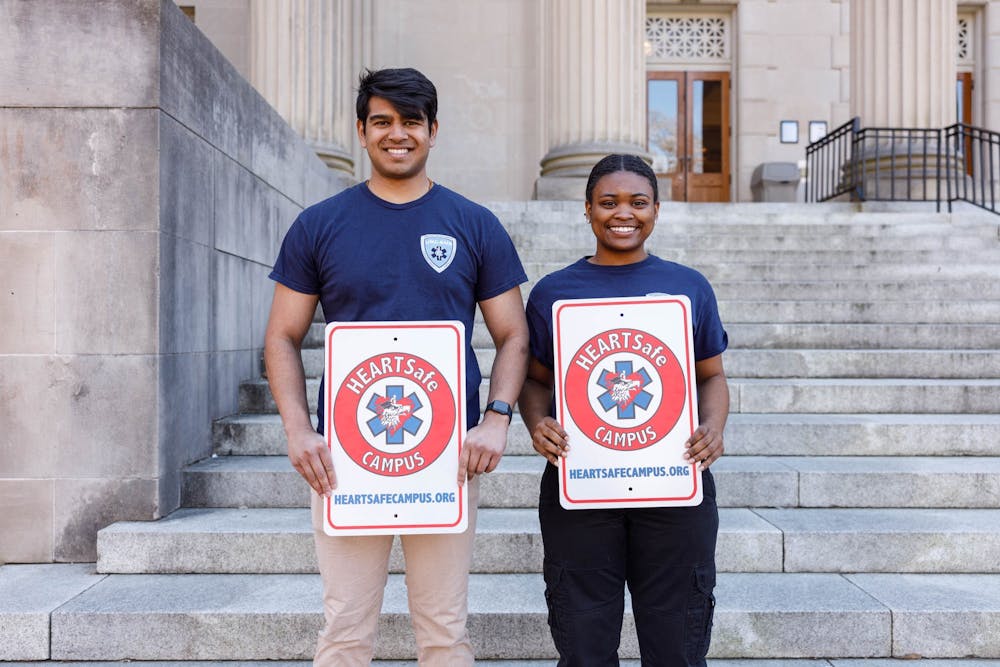For the first time, the University's Campus EMS has achieved HEARTSafe accreditation from the National Collegiate Emergency Medical Services Foundation.
Two students, junior Jayla Cobbs and senior Kirti Patel, led the effort for this award, collaborating with Campus EMS and the Association for Carolina Emergency Response and Injury Prevention. Campus EMS is funded by UNC Campus Health Services and provides first responders, while ACERIP is a student organization accredited by the North Carolina Office of EMS.
Cobbs, the community outreach officer for Campus EMS, helped the University meet the HEARTSafe criteria. These accreditation standards include providing easy public access to defibrillation, having rapid response from first responders and engaging the community in preventative cardiovascular healthcare activities.
HEARTSafe campuses also ensure that at least 5 percent of the student population is trained in CPR. As the training officer for Campus EMS, Patel was the first to push for more CPR training at UNC.
“Every minute that somebody doesn't get bystander CPR, their chance of survival decreases by 10 percent,” Patel said. As of early March, 6.13 percent of students at UNC have learned this life-saving skill, according to a press release from UNC Media Relations.
“This is an enormous achievement by Campus EMS. Immediate initiation of CPR in the event of a cardiac arrest can double or triple the chances of survival. The more folks who are ready to respond, the better the chances of survival,” Michelle Camarena, director of Campus EMS, said in a statement.
During his efforts to bring more CPR training to UNC, Patel reached out to Gidi Shemer, a teaching professor and advisor in the biology department, to provide material. Shemer, who decided to take the course, realized the CPR procedure has changed significantly since the last time he was trained.
“I actually did a bit of, not exactly an EMT, but something of that sort back in the day, and we would combine the CPR together with breathing when we do the mouth-to-mouth, which is no longer the case,” he said. "That's a big, big difference."
At the end of the course, Shemer said he was impressed with how comfortable and inclusive the environment was.




